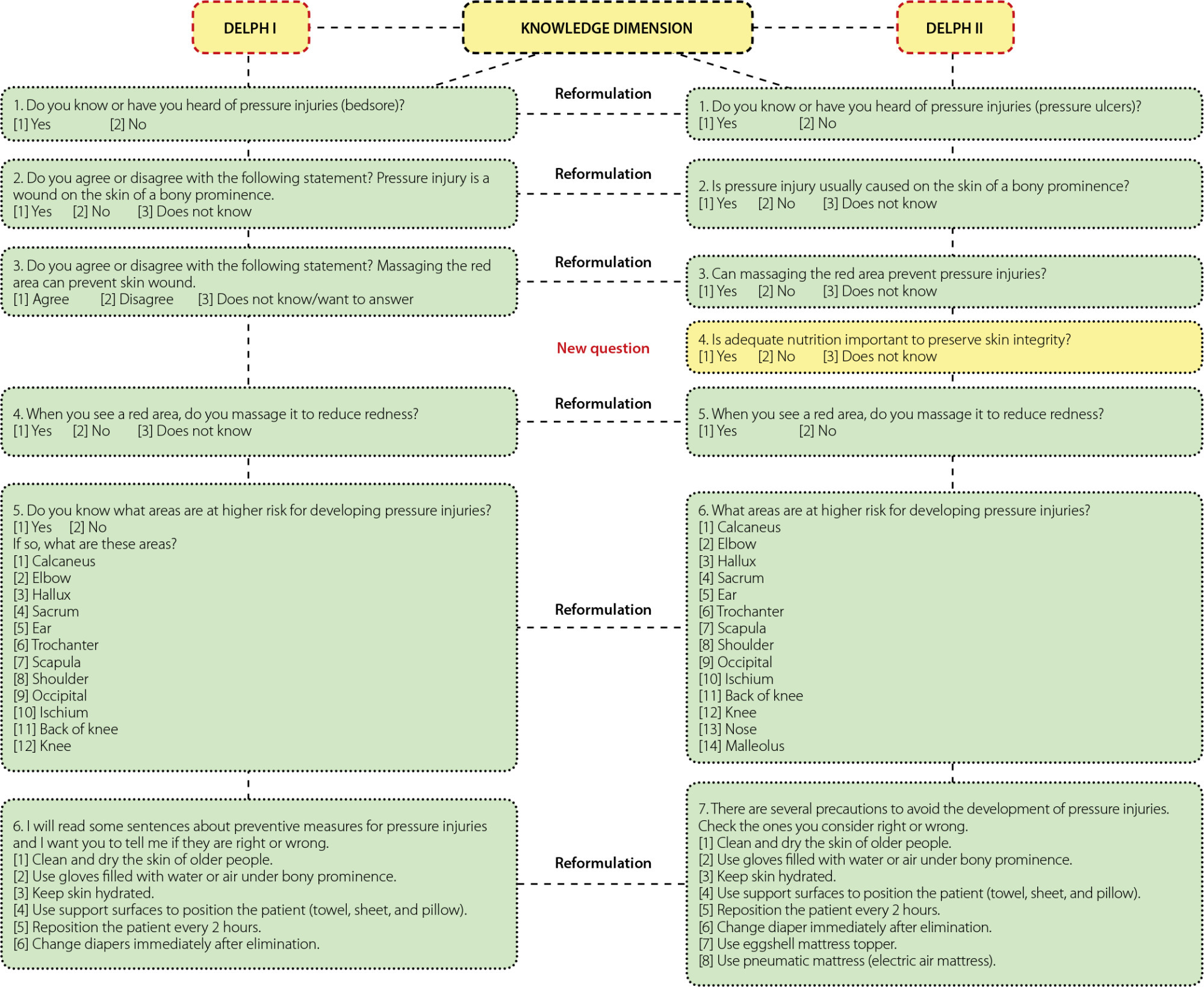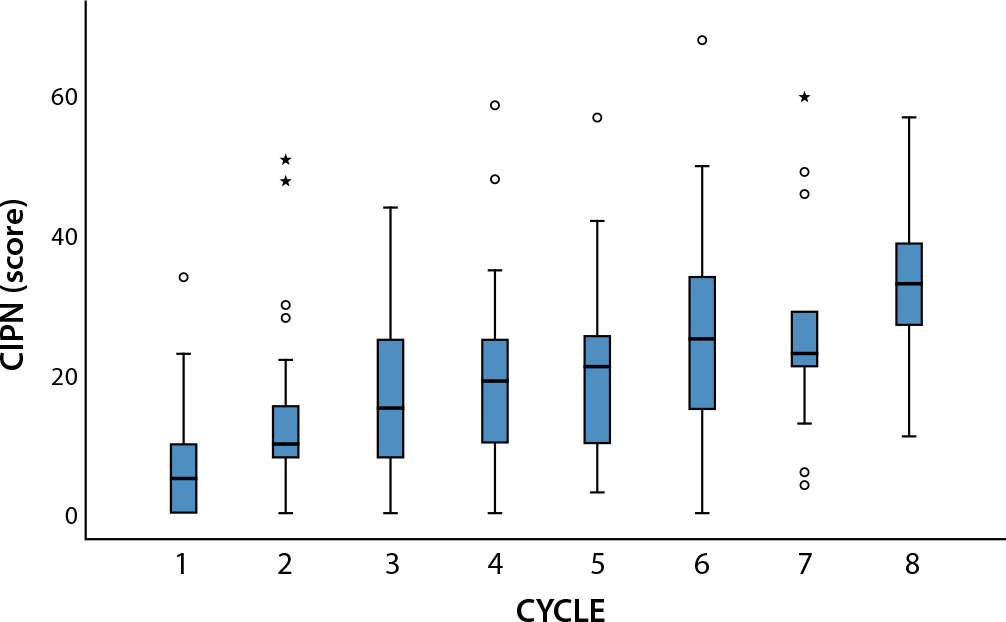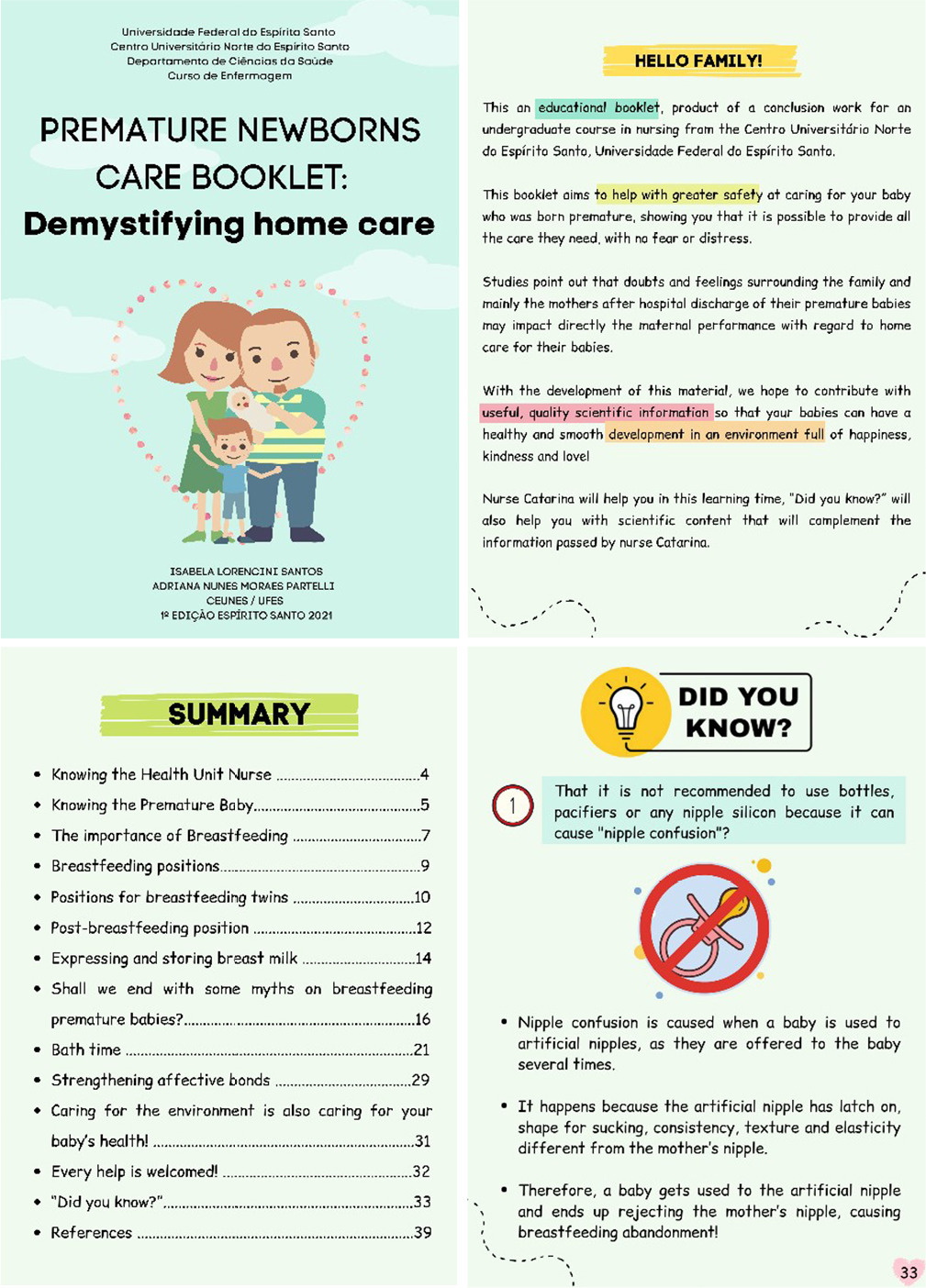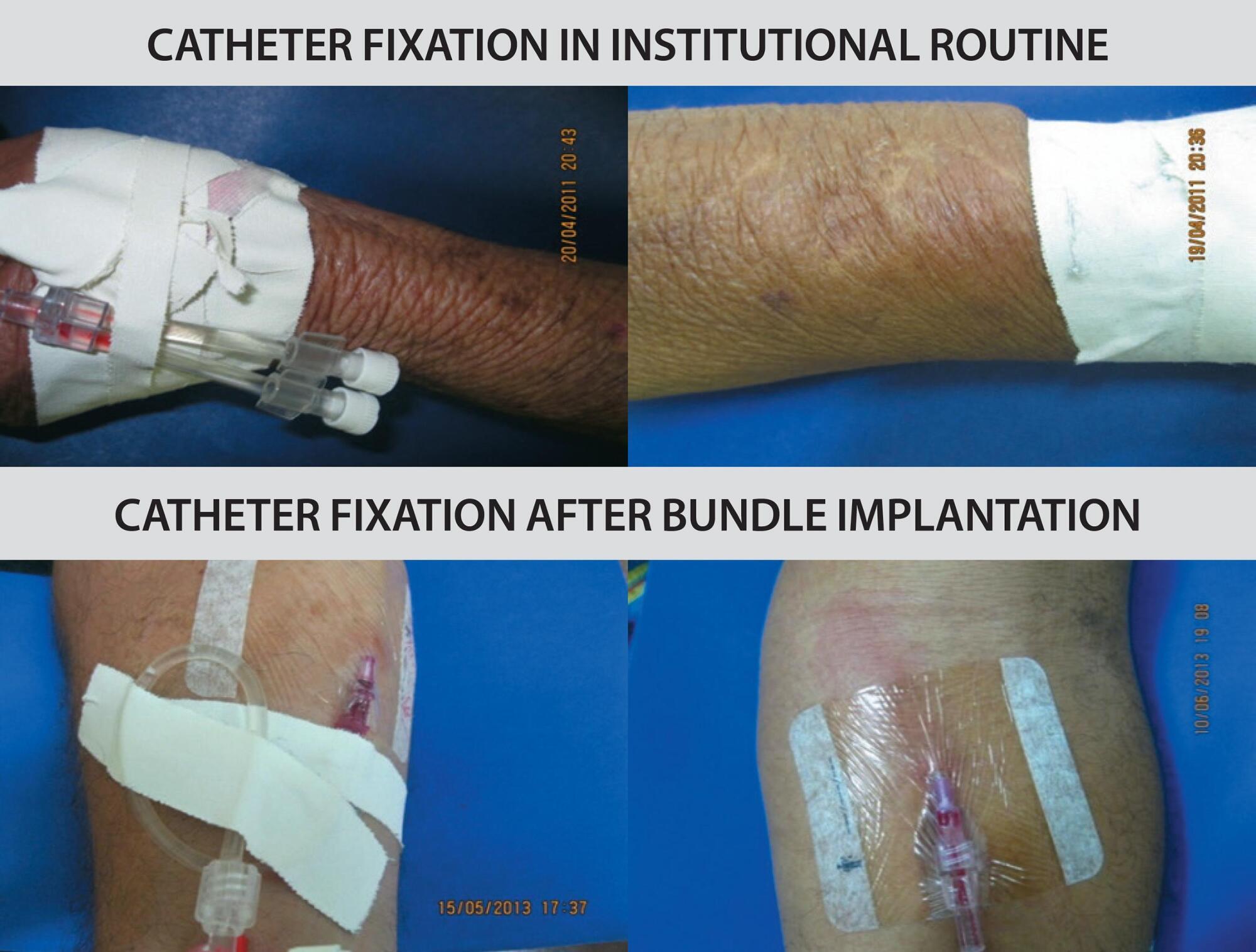-
ORIGINAL ARTICLE02-03-2023
Quality of life and satisfaction of students with auriculotherapy in the covid-19 pandemic: a quasi-experimental study
Revista Brasileira de Enfermagem. 2023;76:e20220522
Abstract
ORIGINAL ARTICLEQuality of life and satisfaction of students with auriculotherapy in the covid-19 pandemic: a quasi-experimental study
Revista Brasileira de Enfermagem. 2023;76:e20220522
DOI 10.1590/0034-7167-2022-0522
Views0See moreABSTRACT
Objectives:
to evaluate the quality of life before and after the application of auriculotherapy and the satisfaction of university students with the treatment during the covid-19 pandemic.
Methods:
quasi-experimental study conducted with 44 students in a University Health Center. The intervention consisted of ten sessions of auriculotherapy focusing on emotional changes with quality of life assessment before and after treatment. The study also investigated the satisfaction concerning the intervention.
Results:
predominated among the students: women, from health courses, in use of psychotropic drugs and complaining of emotional changes. There was a statistically significant increase in all domains of quality of life, and students were satisfied with the treatment.
Conclusions:
auriculotherapy improved the quality of life of university students during the covid-19 pandemic, and the level of satisfaction with the treatment was high.
-
ORIGINAL ARTICLE02-03-2023
Factors associated with the safety culture of patients under dialysis in the context of the COVID-19 pandemic
Revista Brasileira de Enfermagem. 2023;76:e20220280
Abstract
ORIGINAL ARTICLEFactors associated with the safety culture of patients under dialysis in the context of the COVID-19 pandemic
Revista Brasileira de Enfermagem. 2023;76:e20220280
DOI 10.1590/0034-7167-2022-0280
Views0See moreABSTRACT
Objectives:
to assess the factors associated with the safety culture of patients under dialysis in the context of the COVID-19 pandemic.
Methods:
a cross-sectional and analytical study, carried out in Minas Gerais, with 134 professionals from three dialysis services. The Hospital Survey on Patient Safety Culture, adapted for Brazil, was used.
Results:
only variable type of management was associated with the highest percentage of positive response in public and private services. Patient safety was rated as good by 55.7% of respondents. In dimension assessment, the public service presented one strength and five weaknesses, the private service did not present weak areas, and the philanthropic service presented a weakness. The priority areas for improvement actions are represented by dimensions “Nonpunitive response to error” and “Staffing”.
Conclusions:
interventions should consider the type of service management, as it is a factor associated with safety culture.
-
ORIGINAL ARTICLE02-03-2023
Remote teaching during the COVID-19 pandemic: repercussions from professors’ perspective
Revista Brasileira de Enfermagem. 2023;76:e20220172
Abstract
ORIGINAL ARTICLERemote teaching during the COVID-19 pandemic: repercussions from professors’ perspective
Revista Brasileira de Enfermagem. 2023;76:e20220172
DOI 10.1590/0034-7167-2022-0172
Views0See moreABSTRACT
Objectives:
to understand the repercussions of teaching work in remote teaching during the COVID-19 pandemic in Higher Education Institutions in northern Santa Catarina.
Methods:
a qualitative participatory action research, based on Paulo Freire’s theoretical-methodological precepts. Seventeen health professors participated in two Virtual Culture Circles held in the first half of 2021.
Results:
six generating themes emerged for discussion, which aroused in participants’ feelings and perspectives regarding the remote teaching process in the pandemic context, with an emphasis on the connectivity theme, which generated dialogue through reports of personal experiences.
Final Considerations:
the pandemic has had repercussions in sectors such as health and education. Professors talked about their experience in creating, recreating and adapting to remote teaching and the challenges facing the teaching-learning process, listing the worsening of mental health and the need to learn new digital technologies.

-
ORIGINAL ARTICLE01-30-2023
Pressure injury prevention in older people: construction and validation of an instrument for caregivers
Revista Brasileira de Enfermagem. 2023;76(1):e20210930
Abstract
ORIGINAL ARTICLEPressure injury prevention in older people: construction and validation of an instrument for caregivers
Revista Brasileira de Enfermagem. 2023;76(1):e20210930
DOI 10.1590/0034-7167-2021-0930
Views0See moreABSTRACT
Objectives:
to construct and validate an instrument to assess the knowledge, attitudes, and practices related to pressure injury prevention among caregivers of institutionalized older people.
Methods:
this is a three-stage methodological study that consisted of instrument construction, analysis by experts, and semantic and appearance analysis, with 78 participants, observing the validation process steps for psychometric instruments in the criteria of clarity and relevance.
Results:
in the Delphi I round, the validity index of the general content in the clarity criterion was 0.66, in relevance 0.85, and the Kappa value was >0.76. In Delphi II, clarity was 0.95, relevance 1.00, and the Kappa value was >0.97.
Conclusions:
this is a valid instrument in terms of content and appearance, which allows further analysis of its reliability for the measurement of the constructs for which it is intended. Therefore, it can be considered a tool for care management in pressure injury prevention.

-
ORIGINAL ARTICLE01-30-2023
Accuracy of the nursing diagnosis of ineffective airway clearance in intensive care unit patients
Revista Brasileira de Enfermagem. 2023;76(1):e20220174
Abstract
ORIGINAL ARTICLEAccuracy of the nursing diagnosis of ineffective airway clearance in intensive care unit patients
Revista Brasileira de Enfermagem. 2023;76(1):e20220174
DOI 10.1590/0034-7167-2022-0174
Views0See moreABSTRACT
Objectives:
to analyze the accuracy of the clinical indicators of ineffective airway clearance in adult intensive care unit patients.
Methods:
diagnostic accuracy study, performed in the intensive care unit of a university hospital in northeastern Brazil. The sample consisted of 104 patients hospitalized between June and October 2019.
Results:
the prevalence of ineffective airway clearance was 36.54%. The indicators with high specificity included absence of cough (0.8326), orthopnea (0.6817), adventitious breath sounds (0.8175), and diminished breath sounds (0.8326). The clinical indicators with high sensitivity and specificity were alteration in respiratory rate (0.9999) and alteration in respiratory pattern (0.9999).
Conclusions:
six clinical indicators provided an accurate identification of ineffective airway clearance. The clinical indicators alteration in respiratory rate and alteration in respiratory pattern were the most accurate for critical adult patients. The findings of this study contribute to accurate diagnostic inferences and to prevention of respiratory complications in these patients.
-
ORIGINAL ARTICLE01-30-2023
Adverse dermatoneurological events and impacts on daily activities of patients with gastrointestinal neoplasms undergoing chemotherapy
Revista Brasileira de Enfermagem. 2023;76(1):e20220161
Abstract
ORIGINAL ARTICLEAdverse dermatoneurological events and impacts on daily activities of patients with gastrointestinal neoplasms undergoing chemotherapy
Revista Brasileira de Enfermagem. 2023;76(1):e20220161
DOI 10.1590/0034-7167-2022-0161
Views0See moreABSTRACT
Objective:
to associate the presence and grading of adverse dermatoneurological events (peripheral neuropathy and hand-foot syndrome) and the interference in the activities of daily living of patients with gastrointestinal neoplasms undergoing systemic antineoplastic treatment.
Method:
this is a longitudinal, prospective study, using instruments to assess hand-foot syndrome and peripheral neuropathy.
Results:
there were 36 patients: 66.7% diagnosed with colon cancer and 83.2% on combination therapy. From cycle 5 onwards, all of them had hand-foot syndrome, with a majority of grade 1, unrelated to interference in activities of daily living. Regarding peripheral neuropathy, there was a moderate to strong correlation from cycle 1 of treatment.
Conclusion:
peripheral neuropathy negatively affects activities of daily living. The monitoring of dermatoneurological events by oncology nurses contributes to the clinical practice of nursing and subsidizes the development of advanced practice in the country.

-
ORIGINAL ARTICLE01-30-2023
Educational material production and validity: educational instrument for home care for premature newborns
Revista Brasileira de Enfermagem. 2023;76(1):e20210648
Abstract
ORIGINAL ARTICLEEducational material production and validity: educational instrument for home care for premature newborns
Revista Brasileira de Enfermagem. 2023;76(1):e20210648
DOI 10.1590/0034-7167-2021-0648
Views0See moreABSTRACT
Objective:
to produce and validate a booklet, based on Jean Watson’s Theory, on home care for premature newborns, based on caregivers’ experiences.
Method:
a methodological study, developed in the following stages: diagnosis of knowledge needs about home care; survey of scientific content; educational material production; and validity by judges/experts.
Results:
the literature review resulted in 19 articles. The main themes (breastfeeding, bath care, bond building, infection prevention and support network) were listed for producing the booklet “Booklet for Premature Newborns: Demystifying Home Care”. The booklet content and appearance received the overall Content Validity Index of 0.85, considered suitable within the scientific rigor of validity.
Final considerations:
the booklet produced and validated is an educational material whose main role is to provide knowledge and awaken caregivers’ autonomy in providing home care to newborns.

-
ORIGINAL ARTICLE01-30-2023
Development and validation of an instrument for the evaluation of HIV care in Primary Health Care
Revista Brasileira de Enfermagem. 2023;76(1):e20220247
Abstract
ORIGINAL ARTICLEDevelopment and validation of an instrument for the evaluation of HIV care in Primary Health Care
Revista Brasileira de Enfermagem. 2023;76(1):e20220247
DOI 10.1590/0034-7167-2022-0247
Views0See moreABSTRACT
Objective:
To develop and validate an instrument to evaluate the decentralization process of care for People Living with HIV in Primary Health Care.
Method:
Methodological study, developed in four stages: elaboration of the logical model based on the triad Structure-Process-Outcomes; development of the instrument; content validation by expert judges and technical reviewers; and semantic validation. Online questionnaires were used, and the Kappa index was used for analysis.
Results:
The instrument with 68 items and 8 factors was submitted to validation by expert judges who recommended the exclusion of 3 items and the alteration of 2 factors. In the validation by technical reviewers, 2 items were excluded and 6 factors were highlighted; the agreement index was ≥0.75. In the semantic validation, 87.3% of the judges answered “totally agree” for the items presented.
Conclusion:
The instrument is validated for its content, has 63 items and has the potential to assess the care provided for people living with HIV in Primary Health Care.

-
ORIGINAL ARTICLE06-17-2020
Elaboration and validation of a booklet on diabetes for Community Health Workers
Revista Brasileira de Enfermagem. 2020;73(4):e20180899
Abstract
ORIGINAL ARTICLEElaboration and validation of a booklet on diabetes for Community Health Workers
Revista Brasileira de Enfermagem. 2020;73(4):e20180899
DOI 10.1590/0034-7167-2018-0899
Views0See moreABSTRACT
Objectives:
to develop and validate a diabetes booklet for Community Health Workers.
Methods:
methodological study developed in seven steps: Bibliographic review; Development of the booklet; Calculation of readability and comprehensibility scores; Validation of the booklet by the committee of judges; Discussion between experts; Validation of the booklet by the target audience; and Final discussion between experts. Validation was performed by 10 judges via e-Surv and on a face-to-face test with 5 Community Health Workers, considering the minimum Content Validity Coefficient of 0.80.
Results:
the booklet had a mean Content Validity Coefficient of 0.97 in the validation by the committee of judges, and the images had 96.67% approval. In the face-to-face test, the Community Health Workers considered the material clear and appropriate to the function.
Conclusions:
the booklet was developed and validated on its content and relevance, and it can be used by Community Health Workers for diabetes education.
-
REVIEW02-25-2022
COVID-19 and the occupational stress experienced by health professionals in the hospital context: integrative review
Revista Brasileira de Enfermagem. 2022;75:e20200859
Abstract
REVIEWCOVID-19 and the occupational stress experienced by health professionals in the hospital context: integrative review
Revista Brasileira de Enfermagem. 2022;75:e20200859
DOI 10.1590/0034-7167-2020-0859
Views1See moreABSTRACT
Objective:
To analyze Brazilian and international scientific publications about the stress experienced by health professionals in the hospital context during the COVID-19 pandemic.
Methods:
Integrative literature review carried out on the SciELO, ScienceDirect, and LILACS databases, and sources of official Brazilian institutions, with documents published by May 2020.
Results:
Of the 26 selected references, 19 (73.08%) were indexed articles, and 7 (26.92 %) were obtained from official institutions. The study found that stress is mainly due to the overload of hospital services, the removal of professionals, the insufficiency of personal protective equipment and strict biosecurity measures, challenges in the allocation of available resources, and the risk of contamination by COVID-19.
Final considerations:
The stress experienced by health professionals in hospital institutions during the pandemic can trigger occupational and psychological problems.

-
REVIEW11-25-2020
Auriculotherapy and reducing chronic musculoskeletal pain: integrative review
Revista Brasileira de Enfermagem. 2020;73:e20190394
Abstract
REVIEWAuriculotherapy and reducing chronic musculoskeletal pain: integrative review
Revista Brasileira de Enfermagem. 2020;73:e20190394
DOI 10.1590/0034-7167-2019-0394
Views0See moreABSTRACT
Objectives:
to describe the scientific evidence on the use of auriculotherapy to reduce chronic musculoskeletal pain in adults and the elderly.
Methods:
integrative literature review conducted in the Latin American and Caribbean Health Sciences, SciVerse Scopus and MEDLINE databases (via National Library of Medicine), in March 2019, with no time frame.
Results:
14 original scientific articles were analyzed, 64.3% of which were classified with level of evidence 2. All productions show the benefit of auriculotherapy in reducing chronic musculoskeletal pain, especially in the lumbar spine (42.9%). The treatment was developed in one or more sessions, using semi-permanent needles (42.9%) and electro-auriculotherapy (21.4%).
Conclusions:
auriculotherapy was effective in reducing chronic musculoskeletal pain, showing itself as an alternative to be used for the promotion and recovery of individuals’ health.

-
ORIGINAL ARTICLE10-21-2019
Nursing protocol in vascular trauma prevention: peripheral catheterization bundle in urgency
Revista Brasileira de Enfermagem. 2019;72(6):1512-1518
Abstract
ORIGINAL ARTICLENursing protocol in vascular trauma prevention: peripheral catheterization bundle in urgency
Revista Brasileira de Enfermagem. 2019;72(6):1512-1518
DOI 10.1590/0034-7167-2018-0457
Views0See moreABSTRACT
Objective:
to create, apply and analyze in clinical practice the effectiveness of a bundle to prevent peripheral vascular trauma to approach the peripheral venous puncture process.
Method:
action research with 435 adult participants in an emergency service from 2011 to 2013. Creation of the bundle for prevention of vascular trauma based on scientific evidence, ease of operation, observation and measurement with implantation through an educational intervention of the team of nursing. Effectiveness analyzed by descriptive and inferential statistics using chi-square. Consecutive sample with 95% confidence interval.
Results:
Five stages of the bundle were related to the catheter fixation, permanence and removal process. The incidence of vascular traumas due to vein punctures reduced by 46.41% after implantation of the bundle to prevent vascular trauma associated with emergency peripheral catheterization.
Conclusion:
The bundle in clinical practice reduced vascular traumas by venipuncture.

-
REVIEW12-21-2020
Strategies and competences of nurses in men’s health care: an integrative review
Revista Brasileira de Enfermagem. 2020;73:e20190546
Abstract
REVIEWStrategies and competences of nurses in men’s health care: an integrative review
Revista Brasileira de Enfermagem. 2020;73:e20190546
DOI 10.1590/0034-7167-2019-0546
Views0See moreABSTRACT
Objectives:
to synthesize scientific evidence on nurses’ strategies and competencies in men’s health care.
Methods:
an integrative review carried out in seven databases, with a time frame from 2009 to 2019, using the descriptors “men’s health”, “professional competence”, “nursing”, “nursing care” and “male” in Portuguese and in English.
Results:
ten articles were selected, in which it was demonstrated that nursing professionals develop their professional practices with regard to men’s health care, in convergence with the general skills of the profession. The most used are health care; decision-making; Communication; administration; management; continuing education and leadership, consecutively.
Final Considerations:
professionals’ efforts to strengthen health actions, aimed at male needs, in accordance with the general skills of the profession and the principles and guidelines of the Brazilian National Policy for Comprehensive Care to Men’s Health.

-
06-28-2021
Trends in fertility rates, proportion of antenatal consultations and caesarean sections among Brazilian adolescents
Revista Brasileira de Enfermagem. 2021;74:e20200884
Abstract
Trends in fertility rates, proportion of antenatal consultations and caesarean sections among Brazilian adolescents
Revista Brasileira de Enfermagem. 2021;74:e20200884
DOI 10.1590/0034-7167-2020-0884
Views1See moreABSTRACT
Objective:
To analyze the temporal trends in the fertility rate, proportion of antenatal consultations and caesarean sections in Brazilian adolescents aged 15 to 19, between 2000 and 2015. Methods: The fertility rate, proportion of prenatal consultations and proportion of routes of birth were calculated using data from DATASUS. The trend analysis was performed using the Prais-Winsten regression model and the annual percentage change.
Results:
There was a trend of reduction of 3.5% per year in the fertility rate among adolescents (p<0.05), in addition to an increasing trend of 6% per year in the proportion of more than six antenatal consultations (p <0.0001) and an increasing trend of 6.8% per year in the proportion of caesarean sections (p<0.0001).
Conclusion:
Despite the decreasing trend in fertility rates among Brazilian adolescents, they remain high. Also noteworthy is the growing trend for caesarean sections, even with improved access to antenatal care.

-
ORIGINAL ARTICLE08-07-2020
Functional health literacy in older adults with hypertension in the Family Health Strategy
Revista Brasileira de Enfermagem. 2020;73:e20190848
Abstract
ORIGINAL ARTICLEFunctional health literacy in older adults with hypertension in the Family Health Strategy
Revista Brasileira de Enfermagem. 2020;73:e20190848
DOI 10.1590/0034-7167-2019-0848
Views0See moreABSTRACT
Objective:
To assess Functional Health Literacy and the associated sociodemographic, health, information sources and health media factors in older adults with hypertension assisted at the Family Health Strategy.
Methods:
A quantitative cross-sectional study with an exploratory-descriptive approach, carried out with a total of 264 older adults. A sociodemographic and health characterization instrument was used for the data collection, and another one that evaluated the Functional Health Literacy. For the analysis, a descriptive and inferential statistics were performed.
Results:
Most of the participants in the study had inadequate literacy (59.5% – 157), and the variables education, income, hospital stay and internet as a source of information are related to the averages of Functional Health Literacy.
Conclusion:
Knowing the Functional Health Literacy of older adults with hypertension and its associated factors can provide subsidies for the planning of health education strategies that, in fact, meet their health needs.
-
ORIGINAL ARTICLE09-21-2020
Frailty, depression, and quality of life: a study with elderly caregivers
Revista Brasileira de Enfermagem. 2020;73:e20180947
Abstract
ORIGINAL ARTICLEFrailty, depression, and quality of life: a study with elderly caregivers
Revista Brasileira de Enfermagem. 2020;73:e20180947
DOI 10.1590/0034-7167-2018-0947
Views0See moreABSTRACT
Objective:
to analyze the relationship between frailty, depressive symptoms, and quality of life of elderly caregivers of other elderly living in high social vulnerability.
Methods:
a descriptive, correlational and cross-sectional study conducted with 40 elderly caregivers. A questionnaire to characterize elderly caregivers, the Fried frailty phenotype, the Geriatric Depression Scale (to screen depressive symptoms) and the Short-Form 6 Dimension (to assess quality of life) were used. For data analysis, Student’s t-test, ANOVA, Pearson’s χ2 and Fisher’s exact test were used.
Results:
most were pre-frail (52.5%) and had no evidence of depressive symptoms (57.5%). They presented, on average, a score of 0.76 (±0.1) in relation to quality of life. Statistical significance was observed between the average scores of quality of life with depressive symptoms (p=0.012) and frailty level (p=0.004).
Conclusion:
frail elderly caregivers with depressive symptoms had a worse perception of quality of life.
Search
Search in:
Nuvem de Tags
Adolescente (85) Atenção Primária à Saúde (239) COVID-19 (91) Criança (91) Cuidados de Enfermagem (269) Educação em Enfermagem (151) Educação em Saúde (139) Enfermagem (930) Enfermagem Pediátrica (86) Estudantes de Enfermagem (77) Estudos de Validação (131) Família (87) Idoso (208) Promoção da Saúde (99) Qualidade de Vida (104) Saúde do Trabalhador (86) Saúde Mental (145) Saúde Pública (82) Segurança do Paciente (150) Tecnologia Educacional (100)



